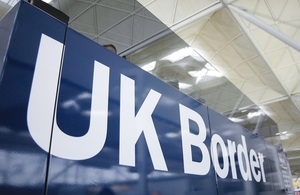- New fund to boost the choice of affordable green finance products for homeowners to help them reduce energy consumption
- government encourages lenders to innovate in the green finance market so families can lower their energy bills and reduce their carbon emissions
- research shows houses with Energy Performance Certificate (EPC) rating C sell for 5% more than less energy efficient ones
New support launched by the government today will help banks, building societies and the wider finance industry to create more green finance products for homeowners.
The new products will be designed specifically for those looking to improve the energy efficiency of their properties.
Ministers are keen to scale up the green finance market and provide households with more choice of affordable finance options to retrofit their homes, helping them spend less on energy. It is part of wider efforts towards ensuring as many homes as possible to EPC band C by 2035 as possible.
Up to £20 million is being made available for lenders and other organisations, through the Green Home Finance Accelerator, to develop new lending products which provide upfront and affordable capital to those who can afford it, to help make their homes more comfortable, cheaper to run and with lower carbon footprints.
The funding will be used to support lenders and other providers to develop, test, and pilot new and innovative green finance products that can help a wide range of homeowners overcome the upfront costs of larger retrofit. It also seeks to boost knowledge and understanding about green finance and how energy efficiency can make homes cheaper to run.
It follows the launch of the new Energy Price Guarantee, which has capped the bill for a typical UK household to an average of around £2,500 a year until April next year. It also comes in addition to the £400 energy bills discount for all UK households.
20% of emissions come from buildings and nearly 2 thirds of owner-occupied homes are below EPC C rating, meaning their energy bills could be hundreds of pounds more than homes with a higher EPC rating.
The average EPC rating of owner-occupied homes is D. Owners of these properties can help push their homes to EPC C through various measures, depending on the property. This can often be by fitting small things like LED bulbs or heating controls. On other properties it might mean installing cavity wall and loft insulation and possibly insulating draughty floors, which together would cost on average £6,500. But these could save households over £300 a year on their energy bills. The financial products today’s funding will help create would ensure households have access to the money they need to make this kind of investment in their homes.
Minister for Business, Energy and Corporate Responsibility, Lord Callanan, said:
Driving up the energy efficiency of homes won’t only reduce our impact on the climate, but will also help houses stay warmer for longer.
Green finance products will allow households with greater means to spread costs over time, empowering them to be able to invest in their properties, improving their energy efficiency and resale value.
Today’s funding will give more companies in the financial sector the opportunity to create and offer these products, and in so doing help households reap the benefits both in the investment to their properties, and in the savings they can make on their energy bills.
Today’s announcement is the latest in a raft of measures designed to help improve the energy efficiency of the country’s housing stock.
The government’s £12 billion Help to Heat schemes includes the £450 million Boiler Upgrade Scheme, which opened to voucher applications in May 2022. This is already incentivising people to move towards low carbon heating, offering grants of £5,000 towards the upfront cost of the installation of an air source heat pump, and £6000 for a ground source heat pump.
The government is providing £4 billion between 2022 and 2026 to improve the energy efficiency of buildings, with 450,000 low-income households having their homes retrofitted with the likes of wall and loft insulation, solar panels and modern heating controls.
Homes Director for Lloyds Banking Group, Andrew Asaam, said:
Around 2 thirds of homes don’t currently achieve an EPC C rating, meaning millions of people are living in colder, draughtier, more expensive to heat homes than they need to.
We are committed to helping people improve their properties, cut their carbon emissions, lower their fuel bills, and live more comfortably in their homes. We will continue to develop, test, and launch products that incentivise, support, and reward energy efficiency home improvements.
It follows the Green Home Finance Innovation Fund in 2019, which supported the likes of Monmouthshire Building Society and Lloyds Banking Group to develop online home energy saving tools and green mortgages. They help customers work out how energy efficient their homes are and create an individualised plan for improving this, with additional borrowing at preferential rates to existing customers and tailored green mortgages to new ones.
- Funded through the £1 billion BEIS Net Zero Innovation Portfolio, the Green Home Finance Accelerator programme (GHFA) competition opens to applications today (18 October 2022). There are no restrictions on the types of organisations who can apply, other than that they must be UK based businesses; however applicants must demonstrate that their project proposal will lead to a viable green finance product and that they have the resources and expertise to deliver this. Consortiums of different partners (for example a lender and an energy efficiency supplier, installer or advice provider) are encouraged. Information on the competition, including the application form, guidance documents and other resources, are available from the GHFA website.
- the GHFA has an emphasis on encouraging novel and innovative finance product and service proposals which the market is unlikely to deliver on its own, and which will target and support consumer types less well served by existing green finance offers
- energy efficiency and low-carbon heating measure costs and savings will vary by property type and size. Likely bill savings will also be influenced by energy price fluctuation, and the costs and savings detailed above are illustrative only. Individual property owners and households can use the government’s new digital energy efficiency advice service to assess the efficiency of their home and determine suitable improvements. Through the advice service households will be able to obtain information on the estimated costs of installing any recommended improvement(s), how much a measure could save on household bills and get information on next steps if they wish to make the improvement(s)
- the typical UK house price was reported as £273,751 by Nationwide in August 2022.
- a pricing study commissioned by BEIS demonstrated a 5% increase in property value in homes with an EPC Band C rating, compared to those with an EPC Band D, when building size and archetype were controlled for. Similar price benefits were identified by a study commissioned by Monmouthshire Building Society as part of their BEIS funded Green Home Finance Innovation Fund project
- find further information on the Boiler Upgrade Scheme and how to apply



